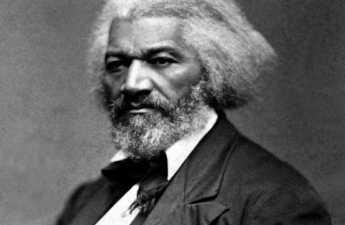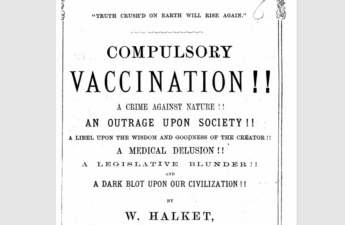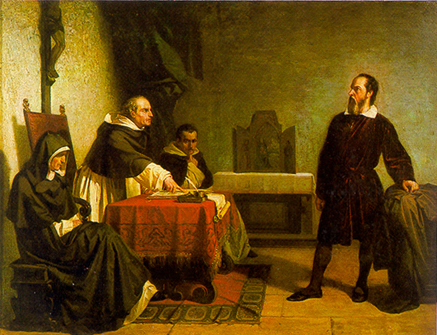
church’s cosmology, which was infected by Aristotelian philosophy.)
The medical inquisition against opponents of bad medical practices in
order to defend entrenched superstition is a recurring problem.
Yesterday, opponents of bloodletting were the heretics, but today,
they are the voice of reason; today, opponents of vaccines are
the heretics; but tomorrow, they too may be
considered the voices of reason.
by Steve Halbrook
posts in this series:
part 1: The Inoculation Controversy of the 1700s
part 2: Opposition to Vaccines by Doctors and Others in History
part 3: The Inquisition Against Opponents of Bad Medical Practices
part 4: The Medical Profession’s Legacy of Tyranny, Torture, and Murder
part 5: God’s Sovereign Control Over Diseases
part 6: Unsafe & Deceptive — the Polio Vaccine Scam
part 7: Moral Objections to Vaccination and Inoculation in History
part 8: Death Certificates and Hiding the Vaccine Holocaust
part 9: in progress
Series Intro
Vaccines have become one of the most polarizing issues of the day. There is an aggressive push by lawmakers to force everyone to become vaccinated, as well as intense hostility by many vaccine supporters towards those who question the efficacy and safety of vaccines.
Where’s all the opposition to vaccines coming from? Are opponents of them crazed fanatics, looking for a conspiracy, or are their concerns legitimate? Having given this topic much reflection and research, we are of the view that they indeed have a case against vaccines, and that vaccines—far from being safe and effective—are a dangerous plague and one of the greatest deceptions in our day.
This series is a case against vaccines from both an historical and biblical perspective. Our hope is that it will equip Christians to better understand how dangerous vaccines really are, and to approach the situation from a biblical worldview.
The Inquisition Against Opponents of Bad Medical Practices
23 About that time there arose no little disturbance concerning the Way. 24 For a man named Demetrius, a silversmith, who made silver shrines of Artemis, brought no little business to the craftsmen. 25 These he gathered together, with the workmen in similar trades, and said, “Men, you know that from this business we have our wealth. 26 And you see and hear that not only in Ephesus but in almost all of Asia this Paul has persuaded and turned away a great many people, saying that gods made with hands are not gods. 27 And there is danger not only that this trade of ours may come into disrepute but also that the temple of the great goddess Artemis may be counted as nothing, and that she may even be deposed from her magnificence, she whom all Asia and the world worship.”
28 When they heard this they were enraged and were crying out, “Great is Artemis of the Ephesians!” 29 So the city was filled with the confusion, and they rushed together into the theater, dragging with them Gaius and Aristarchus, Macedonians who were Paul’s companions in travel. (Acts 19:23-29)
The notion of vaccines being a bad and dangerous practice may be difficult for some to accept; after all, don’t doctors know what’s best for us? Should we ever question their practices? Should we not just go along with whatever they advise, and vaccinate ourselves and our children because they are the “experts”?
While this may be the main reason that the general public accepts vaccines, it is a fallacious reason. Many doctors have no sense whatsoever, and adhere to practices that are discredited, absurd, and even dangerous.
Moreover, what one doctor recommends, another doctor may oppose as unsafe (as we showed regarding vaccines in our previous post).
Knowledge of the body may potentially give doctors an expertise in some medical things — but there is a world of difference between knowledge of the body (which no one has perfectly grasped) and applying appropriate and safe medical procedures.
Not only can one’s approach to medicine be subject to own’s worldview/religion, particular medical philosophy, and knowledge, but also social pressure, economics, and politics. On vaccines in particular, James Colgrove writes in State of Immunity: The Politics of Vaccination in Twentieth-Century America,
It is clear that whatever new vaccines might emerge in the coming years, a volatile mix of social, political, and legal factors will shape the deployment of those innovations. …
Vaccination policy underwent numerous transformations over the course of the twentieth century, reflecting shifts in popular perceptions of contagious disease and iatrogenic risk, evolving legal and constitutional ideas of bodily integrity, changes in the structure and priorities of the nation’s health care system, and, of course, developments in science and technology that produced new vaccines.[1]
Besides cultural factors (which are often negative), a physician’s medical philosophy can easily be constrained by the blinding sin of pride in his knowledge (either actual or supposed): “I am a doctor, and I have it all figured out.” If he thinks he has it “all figured out,” he is unteachable.
On the pride of today’s “scientific” man, R. J. Rushdoony writes:
The optimism of science is boundless. Having declared that scientists will create a new sun, it is nothing for them to plan the creation of life. A famous biochemist has said, “This century will go down in history as the century when life ceased to be a mystery…Life is only chemistry. It is complicated, yes. But we no longer have any reason to believe it is beyond human understanding.” There is, of course, no trace of humility in this statement, but it is absurd for gods to be humble; humility belongs to men. A British scientist has stated, “I feel certain that in another decade or two we ourselves will be able to create life. I no longer find it necessary to believe in God.” Of these scientists, Gunther writes with assurance, “They have found the key to life.”
This then is the new mythology of man, the mythology of science. It expresses the basic presuppositions of the humanism of the day, so that its absurdities, contradictions, and pretensions have the ring of infallible truth rather than irrational myth. The magicians of every age have been imposing, and their prestige great. Their accomplishments have often been, whether in Egypt, Babylon, or in the modern world, very real. But their foundations are untenable and their future one of collapse as the myth breaks on the rocks of reality.[2]
Indeed, it is part of man’s arrogant, sinful nature that he thinks that in his day, he pretty much has it all figured out — or at least that his present attainments are infallible.
Given human nature, surely such a mentality is present in every age. But such a view begs the question, as it assumes what has not proven; one would have to have omniscience to know that perfection in science and medicine has been attained. But man is constrained, morally and intellectually, and science-based medicine, being inductive, is at best fallible.
Nevertheless, too often adherents of the most influential medical philosophy stubbornly cling to bad practices with such fervor that doctors who legitimately question the medical status quo are considered dangerous quacks who must be silenced.
Bad Medicine and Opposing Medical Heretics
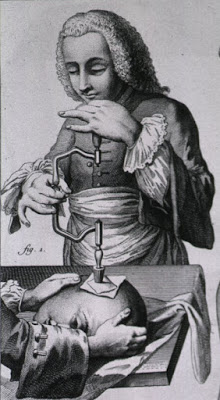
Throughout history, the medical field has embraced practices that have later been rejected as ineffective at best, detrimental to the patient at worst. The description of the person in Mark 5:25, 26 who suffered under physicians financially and physically is not unique:
And there was a woman who had had a discharge of blood for twelve years, and who had suffered much under many physicians, and had spent all that she had, and was no better but rather grew worse.
Some bad practices in medical history have included bloodletting (draining blood to heal illnesses), trepanning (treating intracranial diseases by scraping or drilling a hole in the skull), and mercury treatment (a dangerous metal used as a diuretic, and disinfectant and laxative),[3] as well as starving and purging of those deemed to have mental disorders.[4]
On bloodletting in particular, Liakat Ali Parapia writes:
Bloodletting by phlebotomy has been an obsession with medical practitioners for thousands of years, causing countless suffering to patients … [5]
Parapia also notes,
Napoleon, who himself had been venesected and survived, said of doctors “Medicine is the science of murderers” and he could have been very right! Thousands may have been bled to death, including some notable names.[6]
Bloodletting may have caused or contributed to the deaths of such famous individuals as Mozart, King Charles II, and George Washington.
One writer discusses the state of the medical profession in the UK in the 1800s:
Medical practices were often barbaric, employing methods that had been used for centuries, yielding little or no results and often killing the patient with a different affliction than the original ailment. Leeching (or blood letting), purgation, poor liquid diets, and cold water dousing were common practices as late as the 1850’s. Even after newer, more effective methods of medical treatment had been introduced, many of the physicians, surgeons, and apothecaries hesitated to use them. Fearing the loss of their reputations, they hung on to superstitious beliefs, doubting the effectiveness of such advances, and were basically unwilling to try something new.[7]
In 1846, Sir John Forbes wrote this about the English medical profession:
One of the besetting sins of English practitioners at present, is the habitual employment of powerful medicines in a multitude of cases that do not require their use. Mercury, iodine, colchicum, antimony, drastic purgatives, and excessive blood-letting, are frightfully misused in this manner.[8]
On this, Dr. Samuel Dickson writes:
What was — what could be — the result of these not “one” but many “besetting sins of English practitioners?” This — that the chief business of the “enlightened medical profession,” till very lately, consisted in bringing the yet living bodies of their equally enlightened patients into the quickest preparatory state for post mortem examination. By which procedure, according to their own account, “English practitioners” contributed in a most marvellous manner to the advancement of “the Healing Art!”[9]
Dickson quotes a Dr. Stokes to paint a grim, bloody picture of 19th century medical practices:
To complete so very pleasant a picture of the British “Medical Science ” of the 19th century, I know not that I can do better than place before my readers the following description of the practice of the great Dublin medical men, by one of themselves — Dr. Stokes, of the Meath Hospital: “There was hardly a morning at the Meath Hospital (the doctor tells us) that some twenty or thirty unfortunate creatures were not phlebotomised largely; the floor was running with blood. It was dangerous to cross the prescribing hall for fear of slipping. Patients were seen wallowing in their own blood like leeches after a salt emetic; and these disgraceful scenes continued for many years.” “Leeches were applied, and over and over again the patient died while the leeches were on his temples — died as surely as if shot through the head; and an eminent apothecary assured him that there was then hardly a week that he was not summoned to take off a large number of leeches from the dead body.”[10]

have been one of the many victims of bloodletting,
having died after
undergoing the procedure
to cure an illness.
Dickson adds:
Throughout the length and breadth of the British dominions, the entire profession were “inflammation”-mad to a man! Assuredly the world owes something to the individual — be he who he may — whose rebel pen first startled his fellow doctors from their murderous delusion.[11]
We can always expect some to stubbornly cling to discredited and even dangerous medical practices because of human nature: some are ignorant in what they claim to know about; some are willing to make great compromises to protect their jobs and reputations; and others, out of human pride, are unwilling to admit that they could be wrong.
There is also the influence of money: any business (even the medical profession) will have those who will do whatever it takes to make and protect profits.
It is not surprising, then, that those in the medical profession committed to bad medical practices — and who also make an idol out of money and popularity, or who commit the idolatry of pride — would be hostile to those who propose even possibly legitimate alternatives to accepted practices.
Just as the Bible gives an example of those in the idol-making profession working to suppress Christianity — which legitimately opposed idolatry and thus threatened profits and a false religion (Acts 19:23-34) — some in the medical profession work to suppress those who threaten their profits and idols (and may even work to stir up public opinion against them).
For them, medicine is religious (and not in a good way); as such, those who challenge their religious tenets must be ostracized and denounced as heretics. And thus, according to The Medical News in 1901:
Prior to 1844 there was but one legal school of medicine in this State [NY – editor]; indeed, under the law there could be but one, and that the one provided by the State Society and its county branches. There were then none of the refinements of medication which we possess to-day; the recognized methods were blood-letting, blisters, cathartics and emetics, and it was heresy to advocate any other methods. People who fell victims to disease died often because of the heroic measures employed to counteract the maladies which afflicted them. Indeed, many physicians began to feel that more patients would recover if Nature was left unaided to fight the disease. Few, however, had the temerity to voice these sentiments, and the few that did suffered ostracism because of their expressed views. In England Sir John Forbes incurred the displeasure and contempt of his fellow practitioners by expressing his belief that no treatment at all was better than the treatment then in vogue.[12]
In the case of the French doctor Pierre Brissot, the state was the instrument of persecution. In 1514, he was exiled “after he had reverted to the Hippocratic teaching that the blood letting should be done as close to the site of the illness as possible.”[13] “For this Brissot was regarded as a worse heretic than Luther, and he died in exile.”[14]
The influential herbalist Samuel Thomson (1769-1843), who did not adhere to the prevailing medical philosophy of the day, believed that “much of what is at this day called medicine, is deadly poison.”[15] Thomson would be arrested (but eventually exonerated).
The medical atmosphere had already been severely stirred by the unlettered but courageous Samuel Thomson, who had so agitated the “powers that be” in the dominant medical party that they were quick to resent anything or repulse anyone who dared offer anything in medical philosophy or practice that had not been inherited from the past and approved by the leaders of their cult. Thomson, honest and tenacious, like many another reformer, had been scourged for heterodoxy and had languished in the prison cell.[16]
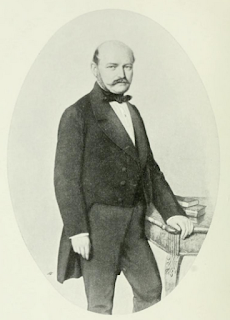
mortality rates.
One of the most important targets of the medical inquisition was Dr. Ignaz Semmelweis (1818-1865). Working in Vienna’s maternity hospital, Semmelweis discovered that doctors and medical students who handled corpses and subsequently assisted in childbirth could infect mothers with particles that resulted in the deadly “childbed fever.”
“He instituted a hand-washing regime and cut mortality rates by 90%.”[17] His fellow doctors, however, were not initially receptive to this great contribution to medical hygiene (although Semmelweis’s tone towards critics didn’t help). For this “service to medicine and humanity, he was persecuted by medical orthodoxy and driven insane.”[18] He spent his final days in an insane asylum, where, some believe, he was beaten to death.
In The Medical Brief in 1902, the editor sums up the blind religious zeal of the medical profession in his day:
When the Editor was a boy, or rather a young man, physicians, generally, bled all their patients for fevers and nearly everything else. The Editor has several scars on his arms from being bled. He distinctly remembers, on one occasion, that when a young doctor present objected, the physician in attendance, a pompous old fellow, said: “Sir, there is not one reputable authority, or physician of recognized ability, in this or any other civilized country, in this enlightened age, who questions the efficacy of blood-letting in all fevers.”
The Editor was very much impressed with this statement, and the air with which it was made. Later on, at medical college, he found there was a very considerable number of physicians scattered throughout the country, who deemed blood-letting a more than doubtful procedure. These were regarded as skeptics and quacks, for in all times and ages, those who follow authority and mistake medical fashion for medical science, never recognize the ability of any man who differs with them. They look at him askance, and take it for granted that he is an ignoramus and a quack.
Nevertheless, the “skeptics and quacks” of that day were prophets in disguise. “No reputable authority” now advises, nor “physician of recognized ability” employs, blood-letting, except, perhaps, in desperate cases of puerperal eclampsia. What physician of to-day, unable to attend a case, would think of sending his lancet to represent him? Yet this was everyday practice between the forties and the fifties.
It took much courage to doubt the efficacy of this measure then; the expression of such doubts was met with crushing scorn. Those who repudiated blood-letting were ostracized and persecuted, that being the treatment usually meted out to anything savoring of heterodoxy.
Human nature has not changed. Fashion, as opposed to principle, still reigns supreme in medicine as elsewhere. The human mind is still fickle, craving novelty more than truth. The crowd still makes conventionality and conformity its god; still punishes, to the best of its ability, those who have the temerity to think for themselves, to differ from the prevailing fashion or standard, to ask awkward questions, to seek to lift the veil.[19]
Those who recognize the dangers and fallacies of vaccines can see parallels between the blind fanaticism of the medical profession in that day (accompanied by the ostracism of those who dare to raise legitimate concerns), with the blind fanaticism of the medical profession in our own.
Human nature, as the editor notes, has not changed; but the “medical heretics” of today may very well be considered the voices of reason tomorrow.
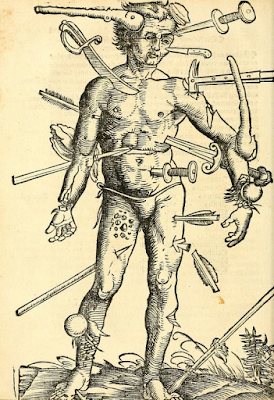
may be recognized tomorrow
as the one of the most monstrous
chapters in medical history.
Against the Anti-Vaccination Heretics
Throughout vaccine history, the notion of vaccination has received legitimate criticism from physicians and others. Nevertheless, the medical profession continues to embrace this discredited and dangerous practice, and to demonize critics.
In his day, James Martin Peebles, M.D., M.A., P.H.D (1822-1922) paralleled vaccinations with previously discredited medical practices:
Compulsory vaccination, poisoning the crimson currents of the human system with brute-extracted lymph under the strange infatuation that it would prevent small-pox, was one of the darkest blots that disfigured the last century. Its pall … still rests like a deadly nightmare upon the body politic, and, sad to state, the medical profession — save a few of the most broad-minded and enlightened — have been the chief instigators. They encouraged it just as they encouraged and practiced in the past profuse bleeding — just as they encouraged catharsis, with the inflamed gums, loosened teeth and the mercurial sore-mouth. And there are medical Bourbons today that will salivate. Thirty years ago physicians would not allow their fever patients a drop of cold water to cool their parched tongues. Many died pleading — begging for water, water!
The majority of doctors are behind the times. They may have diplomas, but they are laggards. They are not students. Many of them prefer the billiard-room to the post-graduate course. They prefer the club-room to the medical laboratory, the cigar to the clinic. They are fossils and away behind in the researches that gladden this brilliant era.
While copious bleeding with much of the old “shot-gun” practice has been relegated to the dreamless shades of the past, they still compulsorily poison with cow-pox lymph … [20]
Similarly, in 1881 the Vaccination Inquirer writes:
The culture of disease to generate health, the perverse logic, the indifference to obvious evidence, the blind confidence in the original cow at Liege, the uninterrupted current of the veritable filth, with its various intensities expressed in a graduated tariff, all remind us of similar combinations of pedantic absurdity and semi-conscious imposture with which medical history abounds. Vaccination is sometimes described as a triumph of science, but in any accurate sense, science has had no more to do with it than with blood-letting, purgatives, and scores of other mysteries of medical art. We invoke science to overthrow this superstition, as science has overthrown many other superstitions; nor shall we invoke science in vain. Vaccination might have long remained a medical mystery, but the determination of the craft to impose it on the whole community, has transferred it from the realm of professional mystery to a matter of universal concern, whilst its universal infliction has produced mischiefs of such magnitude that they can be no longer concealed. Indeed these Calf-Lymph Establishments, private and parliamentary, are open confessions of the hitherto denied dangers of ordinary vaccination.[21]
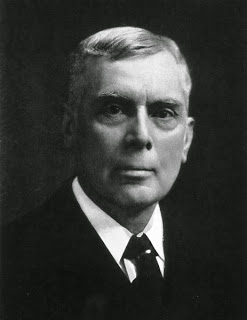
was persecuted after exposing
the fallacies of vaccination in
an Encyclopedia Britannica article.
In 1902, Samuel Holmes Durgin, chairman of the Boston Board of Health, complained that “A serious drawback to our vaccinal protection against smallpox arises from the fact that Boston is practically a hot-bed of the anti-vaccine heresy …”[22] Thus for Durgin, vaccines were religious; to question them was heresy. And so Karen Walloch writes:
In language that equated vaccination with a religion whose creed demanded absolute obedience, Durgin branded antivaccinationists not simply as his adversaries, but as heretics, the worst sort of offenders. By declaring that “the vaccine house is built on a rock” he conflated vaccination with Christianity.[23]
(Durgin, of course, very inappropriately and irreverently applies to his position Christ’s words, “And I tell you, you are Peter, and on this rock I will build my church …” [Matthew 1:18a].) Walloch continues:
By asserting that vaccination stands on a similar unshakable foundation, the “rock” of scientific medicine, Durgin implied that ignorant laypersons or renegade physicians had no standing to dispute its decisions. … Opposition to compulsory vaccination seemed quite heretical to him.[24]
Durgin wasn’t alone in his vaccine crusade:
Other medical professionals also relied on religious metaphors to describe opposition to vaccination. Azel Ames, a Wakefield, Massachusetts physician who directed the Marine Hospital Service vaccination program in Puerto Rico, referred to antivaccination as an “absurd and unwarranted heresy.”[25]
A one S. C. Thornton, as reported in Transactions of the Medical Society of New Jersey, said in 1882,”The anti-vaccination heresy should induce us to educate the public to the necessity of its practice.”[26] And in 1904, a writer in the Medical Mirror asserts, “There does not remain in favor of the anti-vaccination heresy a single argument which has stood the test of critical examination.”[27]
Naturally, persecution of anti-vaccination “heretics” — those who recognize the dangers and fallacies of vaccines — is necessary to protect the dismantling of the vaccine superstition in the eyes of the public.
One of the most prominent victims of the vaccination inquisition was the scholar, historian, and epidemiologist, Dr. Charles Creighton (1847-1927). Creighton initially supported vaccines. But after being asked to write an article on the topic for the Encyclopedia Britannica, he exhaustively studied the subject and found vaccination to be in error.
Thus his article reflected this; and so he became an anti-vaccinationist who found vaccination to be a “grotesque superstition.”[28]
For opposing the vaccine superstition, Creighton — author of the History of Epidemics in Britain and perhaps the greatest medical scholar in nineteenth-century England — was ostracized by the medical community. According to an obituary in the The Lancet by Prof. William Bulloch, F.R.S.:
By the death of Charles Creighton, England has lost her most learned medical scholar of the nineteenth century, although it cannot be forgotten that some of his opinions were the subject of such criticism that he ceased to be felt as a power in the medical world. . . . I was his only intimate friend for years before he died, for he was a most lonely forsaken man. …
The real tragedy of Creighton’s life was connected with his views on cowpox and vaccination. … His article on ‘Vaccination’ in the ninth edition of the Encyclopedia Britannica, published in 1888, literally sealed Creighton’s fate. Based on an extended study of the original data, he came to the conclusion that Jenner’s work was incorrect, and that cowpox was not, as Jenner stated, ‘Variola Vaccinse.’ In Creighton’s view cowpox had nothing to do with variola and was not a protective against variola.
The issue between Creighton and general professional opinion on vaccination was not thrashed out there and then as it ought to have been. It was deemed more expedient to drop Creighton into oblivion, and if he was ever referred to at all it was only as ‘Creighton the Anti-Vaccinator.’ All his other work was forgotten in the debacle, and he was a doomed man. . . . In the opinion of many he was harshly treated by the world for holding views that did not conform to standard.[29]
Today, vaccines are no less religious for its zealous advocates who see it as a necessity for a nation’s survival. While they may not use the word “heretic” to describe those who challenge the accepted orthodoxy, they nevertheless treat them as such — subversives against an infallible creed who must be marked and marginalized for the protection of the established religion of “science.”
Thus, Russell L. Blaylock, M.D., C.C.N., neurosurgeon, author and lecturer, writes:
It is now known in the research world that questioning vaccine safety is a career killer. Researchers who dare to do so have been fired, denied research grants, their articles are rejected by the more “prestigious” science journals, and they are no longer invited to speak at national meetings. The atmosphere of fear is pervasive — all generated by the pharmaceutical giants and their minions.[30]

Modern Medicine: A “Grand Achievement”?
Some may grant that in previous eras, bad medical practices were promoted. But in our modern era, there has been enough advancements to largely rule out medical incompetence. Thus, it can be taken for granted that the medical profession’s hostility to critics (such as opponents of vaccines) is probably warranted.
In the beginning of this piece we addressed some flaws of this mindset, which we here discuss further.
The mere fact that we have technological advancement in medicine doesn’t necessarily mean that modern medicine, in practice, is a grand achievement. One can just as easily (if not more easily) achieve evil with technology as one can achieve good. (Fallen, unsaved man is naturally inclined to wickedness, and even Christians themselves struggle with sin.)
Technology and other modern advancements can make helping one’s fellow man more efficient — but they can make harming one’s fellow man more efficient as well. They can be used as a means to serve God — but they can also be used as a means to oppose Him.
“Modern medicine” is idolized as a grand achievement that stands far above all previous medical eras. However, our nation — which includes the medical establishment — has largely rejected Christ, and thus has rejected biblical morality. (This is not to say that the profession never adheres to God’s law, but we are referring to the overall trajectory.)
And since morality is more fundamental than technological achievement, we should instantly see the fallacy in boasts about the greatness of modern medicine. Without God’s law, the medical profession immediately becomes greedy for dishonest gain, negligent with life (if not outright murderous), and a promoter of wickedness — none of which are conducive to physical health. (The wages of sin is death, Romans 6:23.)
Thus, the medical profession — aided and abetted by modern technology — enriches itself by unnecessary procedures, sex change operations, prescribing dangerous drugs, slaughtering unborn children, etc.
Having, then, largely rejected Christ for worthless idols, our nation is under the judgment as mentioned in Romans 1:
For although they knew God, they did not honour him as God or give thanks to him, but they became futile in their thinking, and their foolish hearts were darkened. Claiming to be wise, they became fools, and exchanged the glory of the immortal God for images resembling mortal man and birds and animals and creeping things. (Romans 1:21-23)
The text goes on to list wicked acts that result from rejecting God.
And so while many may claim to be wise on the basis of having a medical degree, many, having rejected God, may really be fools. Since a bad tree bears bad fruit, we can expect many mythological and dangerous practices in the name of modern medicine.
(Of course, some doctors are Christians, and so they would not be considered “fools.” But out of ignorance, they may still employ ineffective and dangerous, and thus “foolish,” practices. Moreover, despite being under the bondage of sin, non-Christian doctors do not necessarily always engage in practices detrimental to a patient’s health.)
Technological advancement has no power to change human nature. Thus, the matter of technological advancement is secondary; human nature is the fundamental issue when it comes to medicine. At his best and most godly, medical man is still a sinner and constrained in his knowledge; at his worst and most ungodly, medical man is a heartless butcher, concerned only for prestige and profits.
And so the efficacy of practices will to a large degree mirror the morality of the practitioners; but no matter what, medicine will always be tainted with error.
Nor can we appeal to “medical consensus”: the matter of effective medicine is a moral and scientific matter — not a matter of majority opinion. Morality is not determined by the majority, but by God; and science is determined by careful experimentation — not by counting noses.
According to Dr. Franklin E. Payne, Jr., a writer on medical ethics from a Christian perspective, “Modern medicine in its entirety is detrimental to the health of modern man! Even if abortion is left out of the equation, this statement is true.”[31] He adds:
The image of modern medicine received a great boost from two classes of simultaneous events. One class was that of social and economic change. The other was the disappearance of certain diseases.
From the turn of the 20th century through the 1960s, extensive changes in the economic and cultural conditions took place that made the United States a more healthy place to live. Windows were screened. Outdoor toilets were replaced by indoor plumbing, septic tanks, and sewage systems. Water treatment plants became a work of every city and county government. …
Also, some diseases disappeared, sometimes because of these changes, and sometimes for unknown reasons. For example, rheumatic fever, a common cause of heart disease in children before the 1960s, virtually disappeared before antibiotics were widely available to treat the bacterial infection that causes rheumatic fever. Whooping cough, as a cause of death, disappeared before widespread immunization occurred. The spread of tuberculosis was halted before anti-tubercular drugs were available.
These two simultaneous events coincided with the rapid expansion of medical care and research. Thus, scientific medicine received the credit for “conquering” disease and death. While medicine may deserve some credit, the overwhelming evidence is that medicine had little effect compared to the socioeconomic conditions and simultaneous disappearance of infectious diseases.[32]
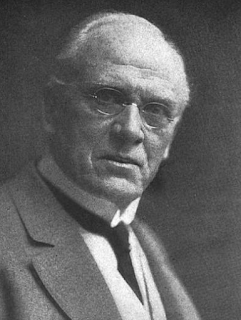
vaccination “is a fallacy and must die.
This may sound strange to those
who have faith in modern
medical science.”
A 1978 report by the Congressional Office of Technology Assessment states, “It has been estimated that only 10 to 20 percent of all procedures currently used in medical practice have been shown to be efficacious by controlled trial.”[33]
A year prior to this, in the article “Health: A Matter of Statistics or Feeling?” in the New England Journal of Medicine, E. J. Ingelfinger writes:
In slightly over 10 percent of cases, however, medical intervention is dramatically successful … in the final 9 percent, give or take a point or two … the patient ends up with iatrogenic (physician-caused) problems. So the balance of account ends up marginally on the positive side of zero. … Perhaps the role of the doctor as reliever rather than healer should be accentuated … health statistics appear somewhat irrelevant to the ordinary purposes of patient care, which deal with the hope of an individual human being that his trouble will be ameliorated.[34]
On this Dr. Franklin E. Payne comments, “Two points should be noted: the small net effect of medical care and the author’s emphasis upon the nonphysician (spiritual) dimension, ‘hope.'”[35]
Iatrogenic (physician-caused) problems, which Ingelfinger draws attention to, is a very serious problem in modern medicine. According to an article in 2000 by Dr. Barbara Starfield of the Johns Hopkins School of Hygiene and Public Health on U.S. healthcare, deaths for iatrogenic reasons totaled 225,000 per year (but could be upwards of 230,000 – 284,000).[36] She adds,
In any case, 225000 deaths per year constitutes the third leading cause of death in the United States, after deaths from heart disease and cancer. Even if these figures are overestimated, there is a wide margin between these numbers of deaths and the next leading cause of death (cerebrovascular disease).[37]
How many more physician-caused deaths would there be per year if the numbers include every abortion and vaccine-caused death?
Due to the straitjacket of government intervention and state licensing (which began in the U.S. around the end of the 19th century or the beginning of the 20th),[38] the modern medical profession, despite technological advancement, may be more unable to relinquish bad medical practices than ever. For instance, as Payne observes:
Increasingly, the state has also said what the physicians can and cannot do. The physician must prescribe drugs from an approved list, or the state will not pay for them. The physician is limited in the number of times he can be paid for patient care visits and how often certain procedures can be done. Certain patients need more care than the allowed limit, but little flexibility is built into the system.[39]
Medical historian Dr. Harris Coulter compares the dangers and rationalizations of today’s medical profession with that of the 1830s:
Society today is paying a heavy price in disease and death for the monopoly granted the medical profession in the 1920’s. In fact, the situation peculiarly resembles that of the 1830’s when physicians relied on bloodletting, mercurial medicines and quinine, even though knowing them to be intrinsically harmful. And precisely the same arguments were made in defense of these medicines as are employed today, namely, that the benefits outweigh the risks. In truth, the benefits accrue to the physician, while the patient runs the risks.[40]
This is not to say that modern medicine has no benefits whatsoever. But with the reckless prescribing of dangerous drugs, unnecessary surgery, faith in the myth of Darwinism, the quack philosophy of psychiatry, opposition to commonsense natural remedies, treating the symptom instead of the source, etc., the point should be well-established: “modern medicine” should be no more immune to criticism than practices in previous ages — and therefore neither should its hostility to anti-vaccination be taken for granted as being infallible.
In fact, so long as the world continues, we can expect the medical profession to continually change its standard of what practices are “enlightened.” Today’s “modern medicine” — aided and abetted by the misuse of technology — may someday be considered one of the most monstrous chapters in medical history. (And I would agree.)
And so just because those in power attack those who oppose vaccines as “unscientific” subversives, it doesn’t mean they necessarily are; and the time may come when the “heretics” of today are considered the voices of reason tomorrow. Or, as Dr. John Henry Tilden (1851-1940) writes:
Now the question is: Does vaccination protect against smallpox? What everybody says must be true — this is the argument. And, of course, what everybody says is true will be delivered in statistical form to agree; hence the statistics on the subject are all in favor of vaccination. … The time will arrive when the people will become so educated and enlightened on the subject of disease, its cause, etc., that this opinion — this vaccination superstition — that everybody now believes, will have passed and everybody will believe the opposite. It is doomed — it is a fallacy and must die. This may sound strange to those who have faith in modern medical science … [41]
Let’s hope that the medical field comes to grips with the fact that the earth is not flat, and that it not only ends its inquisition against doctors who oppose vaccines, but its assault of medical patients — those who stand to be injured or even killed by the barbarous practice of vaccination.
But in the meantime, non-doctors should do their own research so that they are not blown by every wind of medical belief. They should not fear to question the tenets of the Modern Medicine Cult; just because it often prefers to live in the Medical Dark Ages, it doesn’t mean that we also have to. When it comes to vaccines and many other practices, it may be, as it has been throughout medical history, a life and death matter.
Notes
_______________________________
[1] James Colgrove, State of Immunity: The Politics of Vaccination in Twentieth-Century America (Berkeley, CA: University of California Press, 2006), 250, 251.
[2] R. J. Rushdoony, The Mythology of Science (adaption from the book The Mythology of Science) (Chalcedon). Retrieved June 20, 2015, from http://chalcedon.edu/topics/science.
[3] “10 Most Barbaric Treatments in Modern Healthcare,” Top Master’s in Healthcare Administration (February 8, 2014. Retrieved February 24, 2015 from http://www.topmastersinhealthcare.com/10-most-barbaric-treatments-in-modern-healthcare/.
[4] Sheila L. Videbeck, Psychiatric-mental Health Nursing (Lippincott Williams & Wilkins, 2010), 4.
[5] Liakat Ali Parapia, “History of bloodletting by phlebotomy,” British Journal of Haematology, vol. 143, issue 4 (November 2008): 490-495. Retrieved June 17, 2015, from http://onlinelibrary.wiley.com/doi/10.1111/j.1365-2141.2008.07361.x/full.
[6] Ibid.
[7] “Student Paper on 19th-Century Medicine,” University of Michigan-Dearborn: Personal Home Pages. Retrieved February 24, 2015 fromhttp://www-personal.umd.umich.edu/~jonsmith/19cmed.html
[8] The Lancet, 1846. Cited in Samuel Dickson, The “Destructive Art of Healing;” A Sequel to the “Fallacies of the Faculty.” (London: Simpkin, Marshall, and Co., 1856), 5.
[9] Dickson, The “Destructive Art of Healing”, 5.
[10] Ibid. Stokes cited from Medical Times, 1854.
[11] Ibid., 6.
[12] Smith Ely Jelliffe, ed., The Medical News, Volume 78, January-June 1901 (NY: Lea Brothers & Company, 1901), 7.
[13] Tord Ajanki, Medicinal Reading … Of genius, pure chance and dedicated hard work
(Stockholm, Sweden: The Swedish Pharmaceutical Press, 1995), 60.
[14] Erwin H. Ackerknecht, A Short History of Medicine (Baltimore, MD: The Johns Hopkins University Press, 1982), 97.
[15] Samuel Thomson, New Guide to Health; Or, Botanic Family Physician. Containing a Complete System of Practice, Upon a Plan Entirely New: with a Description of the Vegetables Made Use Of, and Directions for Preparing and Administering Them, to Cure Disease. (Boston, MA: J.Q. Adams, 1835), 6.
[16] H. W. Felter, “Pathfinders,” The National Eclectic Medical Association Quarterly, vol. 1, no. 2 (Cincinatti, OH: December 1909), in The National Eclectic Medical Association Quarterly, ed. William Nelson Mundy, vol. 1 (Cincinnati, OH: The Association, 1910), 87.
[17] Stuart Clark, “Are great scientists always heretics?,” BBC (April 11, 2013). Retrieved June 10, 2015, from http://www.bbc.co.uk/science/0/22078983.
[18] C. K. J. Paniker, ed., Ananthanarayan and Paniker’s Textbook of Microbiology (Orient Blackswan, 2005), 1.
[19] “Blood-Letting.,” The Medical Brief: A Monthly Journal of Scientific Medicine and Surgery, Volume 30 (1902), 394, 395.
[20] James Martin Peebles, Vaccination a Curse and a Menace to Personal Liberty: With Statistics Showing Its Dangers and Criminality (Los Angeles, CA: Peebles Publishing Company, 1913), 6, 7. We do not endorse Peebles’ spiritualism.
[21] The Vaccination Inquirer and Health Review, vol. 3, no. 26 (May 1881). Cited in The Vaccination Inquirer and Health Review: Volume 3: April 1881 – March 1882 (London: 1882), 15, 16.
[22] Boston Board of Health, Thirty-First Annual Report of the Health Department of the City of Boston for the Year 1902 (Boston, 1903), 36. Cited in Karen Walloch, “A Hot Bed of the Anti-vaccine Heresey”: Opposition to Compulsory Vaccination in Boston and Cambridge, 1890-1905 (Ann Arbor, MI: ProQuest, 2008), 208.
[23] Walloch, “A Hot Bed of the Anti-vaccine Heresey”, 208.
[24] Ibid., 208, 209.
[25] Azel Ames, “Letter to the Editor,” American Medicine 4 (1902): 531-532. Cited in Ibid., 209 (f.n.).
[26] S. C. Thornton, “Burlington County: To the Chairman of the Standing Committee” (Moorestown, May 1, 1882), Transactions of the Medical Society of New Jersey (Newark, NJ: L. J. Hardham, 1880), 202.
[27] Norman Barnesby, Medical Mirror, ed. N. Newnham-Davis, vol. 15, no. 5 (May 1904): 156.
[28] Charles Creighton, Jenner and Vaccination: A Strange Chapter of Medical History (London: Swan Sonnenschein & Co., 1889), 353.
[29] William Bulloch, The Lancet (July 30, 1927). Cited in Joseph Swan, The Vaccination Problem (1936). Retrieved July 12, 2015, from http://www.whale.to/a/creighton1.htm.
[30] Russell L. Blaylock, Big Pharma Vilified Researcher for Threatening Vaccine Program (Newsmax, January 13, 2011). Retrieved May 13, 2015, from http://www.newsmax.com/Health/Health-News/article/2011/01/13/id/476702.
[31] Franklin E. Payne, Jr., Biblical Healing for Modern Medicine: Choosing Life and Health or … Disease and Death (Augusta, GA: Covenant Books, 1993), 47.
[32] Ibid., 48, 49.
[33] Office of Technology Assessment, “Assessing the Efficacy and Safety of Medical Technologies” (NTIS order #PB-286929) (September 1978. Retrieved June 18, 2015, from http://www.fas.org/ota/reports/7805.pdf.
[34] E. J. Ingelfinger, “Health: A Matter of Statistics or Feeling?”, New England Journal of Medicine, 296 (1977): 448-449. Cited in Franklin E. Payne, Jr., Biblical/Medical Ethics: The Christian and the Practice of Medicine (Milford, MI: Mott Media, 1985), 35.
[35] Payne, Biblical/Medical Ethics, 35.
[36] Barbara Starfield, “Is US Health Really the Best in the World?”, Journal of the American Medical Association, vol. 284, no. 4 (July 26, 2000, American Medical Association): 484. Retrieved June 18, 2015, from http://www.jhsph.edu/research/centers-and-institutes/johns-hopkins-primary-care-policy-center/Publications_PDFs/A154.pdf.
[37] Ibid.
[38] Payne, Biblical Healing for Modern Medicine, 163. Payne writes, “A devastating argument against state licensing has been developed by Dr. Stanley J. Gross. [Of Foxes and Henhouses] His book is devoted to the question of state licensing with particular emphasis on psychology and the health professions. It cites numerous studies that licensing fails to achieve the goal of either quality care or ‘protecting’ the public. Actually, licensing prevents a higher quality of medical care from being achieved.”(Ibid., 164.)
[39] Ibid., 166.
[40] Harris L. Coulter, Divided Legacy: The Conflict Between Homeopathy and the American Medical Association: Science and Ethics in American Medicine: 1800-1914 (Berkley, CA: North Atlantic Books, 1982), 515.
[41] J. H. Tilden, Impaired Health: Its Cause and Cure: A Repudiation of the Conventional Treatment of Disease: Volume Two (Denver, CO: J. H. Tilden, 1921), 22, 23.
photo credit: Picture of pills © RayNata / Wikimedia Commons (CC BY -SA 4.0) (license) Retrieved June 16, 2015, from http://commons.wikimedia.org/wiki/File:Datos_Pegados_ff93.jpg
If you find this site helpful, please consider supporting our work.

